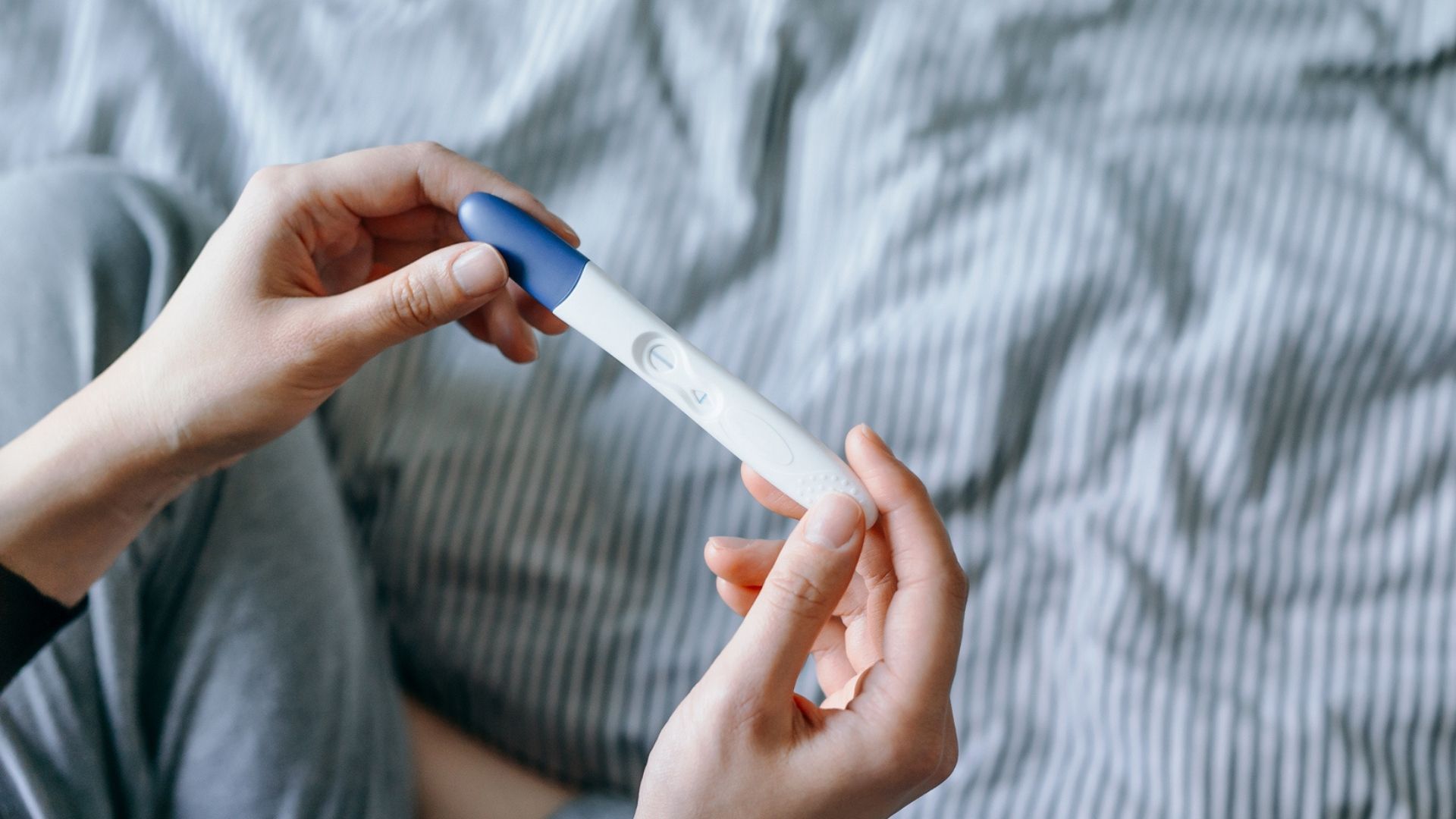How to cope on Mother’s Day if you’re struggling to conceive
How to cope on Mother's Day if you're struggling to conceive, according to an expert

Mother's Day can conjure up all sorts of complex emotions especially if you are struggling to conceive, or have experienced a miscarriage. A day centered around celebrating motherhood can serve as a cruel reminder of everything you don't have.
The road to parenthood is an acutely personal experience, as many couples who are struggling to conceive choose not to tell friends and family, who may inadvertently make the day worse by sharing pictures of their own happy family.
Like any form of grief, coping mechanisms will vary from person to person, but there are some steps you can take to look after yourself. We spoke to Gwenda Burns, chief executive of Fertility Network UK, who shared some expert tips for anyone struggling to navigate this tricky day.
How to cope on Mother’s Day if you’re struggling to conceive
Mother’s Day can be one of the hardest days of the year when you’re struggling to conceive or experiencing the loss of miscarriage, says Gwenda Burns, chief executive of Fertility Network UK.
"It all too often feels like a cruel reminder of what you don’t have and most desperately long for and it may seem as if everyone is celebrating and you cannot be a part of that."
Similar to coping with the loss of a parent, there's no catch-all solution, but there are some strategies you can try to get you through the day.
1. Acknowledge your feelings
"The most important thing is to acknowledge your feelings. They are valid. Infertility can be corrosive, devastating, and all-encompassing. Take time to reflect on your situation and where you are on your journey," says Burns.
Sign up to our free daily email for the latest royal and entertainment news, interesting opinion, expert advice on styling and beauty trends, and no-nonsense guides to the health and wellness questions you want answered.
Your journey to getting pregnant can feel long, but try to focus on how far you've got so far. Whether you've started IVF, started making healthy lifestyle choices, or even if you've just newly accepted your journey might be more complicated than you were hoping for, focus on what you have achieved.
Don't be scared to embrace your feelings, either. Feelings of sadness, anger, grief, and even jealousy are completely normal on this day, and throughout your journey. Avoid trying to suppress them.
2. Don't feel guilty turning down plans
Not keen on seeing anyone on Mother's Day and just want to while the day away? That's fine too. Don't feel pressurized to meet people or celebrate the day.
"Be kind to yourself too. You don’t have to do anything you don’t want to do. It’s ok to turn down invitations. You can spend the day under the duvet if that’s what’s needed," says Burns.
Why not pamper yourself with an at-home pedicure or crack out your best scented candles and draw a hot bath? Alternatively, get lost in one of the best e-books from the last year. Now could be the time to kick-start a new hobby. In short, spend time doing what makes you happy.
3. Make it special for you

Feel free to reclaim the day and mark it in an alternative way, whether it be taking a long stroll or going out for a meal.
"You may want to make it a special day in an alternative way for you and your partner. Honor how hard you have tried to be a mum and know it is not your fault that you aren’t," advises Burns. "If you want to go out, perhaps a walk in the spring sunshine away from crowded places, which could be triggering."
Getting out for a walk is a simple but powerful step you can take, which can help focus your thoughts and clear your head. The health benefits of walking can't be overstated, both in terms of physical and mental health.
If your mum is still alive and sympathetic of your situation, you may want to make plans with her and celebrate your relationship together.
For many, Mother's Day is a day of grief as they will find themselves mourning their own mother while dwelling on their own struggles with motherhood. If you are in this situation, read our guide to coping with grief on Mother's Day but remember there's no 'right' way to grieve: just do what works for you.
4. Plan ahead
Even if you don't want to acknowledge the day, if you know it will be difficult, plan ahead so that you still have some control over it.
"Although it may feel like it is impossible for Mother’s Day to be anything other than distressing, if you make a plan ahead of time, then you have some control over the day. The raw emotions may still be there, the pain, heartbreak, anger, grief, and more, but with understanding and support you will hopefully weather this day," says Burns.
Your 'plan' doesn't need to involve you actively doing anything, but mentally preparing for the day and controlling your environment ahead of time may help you get through it.
5. Avoid triggers
Burns advises taking a break from social media if you know that being online is likely to upset you. It can be difficult seeing people's happy family pictures when you are struggling to start your own. Alternatively, you can mute specific accounts or keywords if you find that easier.
Similarly, if you find all the Mother's Day flowers and cards upsetting, practice self-preservation if you can and avoid the shops or opt-out of marketing emails about the day.
Some people who are struggling to conceive may find it distressing walking past the baby aisle of a supermarket, or crowded family-friendly places. You might want to avoid going out with other people who have children for the day, too. Everyone has their own triggers, so it's important to identify yours.
6. Remember you're not alone
Infertility can feel lonely, but remember that you're not alone. According to the latest NHS figures, one in seven couples may have difficulty conceiving. A further one in four women will experience the loss of pregnancy, according to Peanut. If you have any close friends or family members who are aware of your situation, lean into them for support.
You might find it helpful to speak to women who are going through the same experience, too. Many people choose not to share their struggles with loved ones, so online communities can be a fantastic safe space. Peanut has dedicated forums for people trying to conceive (TTC) where users will share anything, from details about their journey to everyday observations. If you'd prefer to talk to people face to face, there are scores of support groups across the country. Find your nearest on the Fertility Network UK website, which also has an online community with nearly 40,000 members.
If you are based in the UK and are seeking professional and impartial support, you can also call the network's support helpline on weekdays from 10am-4pm. Call 0121 323 5025 on Mondays, Wednesdays, and Fridays, and 07816 086694 on Tuesdays and Thursdays. The lines aren't open on Mother's Day but it's worth bearing this invaluable resource in mind if you ever need someone to talk to.
Some of the best femtech apps also feature community networks and on-the-go resources, such as Bonzun, the world's first personalized IVF app, which allows you to log your IVF experience, providing you with helpful resources along the way.
How to support someone who is struggling to conceive

If you want to support a loved one who is struggling to conceive, ensure you are there for them to listen, but always take your lead from them.
"If you want to support a friend experiencing fertility issues on this tough day, tell them you are there for them to listen and to do whatever they would prefer. It’s up to them and whatever they say, goes. Do not give advice, unless explicitly asked to," advises Burns.
If you invite them out, avoid family-focused activities and remember to be sensitive when talking about your own experience. It may not be helpful to talk about how easy it was for you to conceive, or to share cards that you received from your kids. Many people will choose not to discuss their journey to motherhood and it's important that you respect that. Be on hand if they want to talk, but don't probe if you sense they aren't comfortable talking about it.
Be mindful of asking people about their plans to have children generally; it's an often-asked question but it's also a personal one, and many couples may not want to discuss their reasons for being childless.

Anna is an editor and journalist with over a decade of experience in digital content production, ranging from working in busy newsrooms and advertising agencies to fashion houses and luxury drinks brands. Now a freelance writer and editor, Anna covers everything lifestyle, from fashion and skincare to mental health and the best cocktails (and where to drink them).
Originally from Glasgow, Anna has lived in Berlin, Barcelona, and London, with stints in Guernsey and Athens. Her love of travel influences her work, whether she’s stocking up on the best skincare at French pharmacies, taking notes on local street style, or learning to cook regional cuisines. A certified cinephile, when she's not travelling the world, you'll find her hiding away from it at her local cinema.
